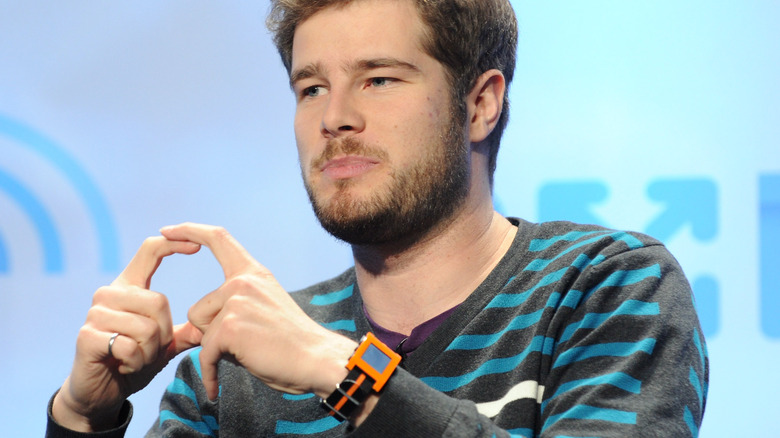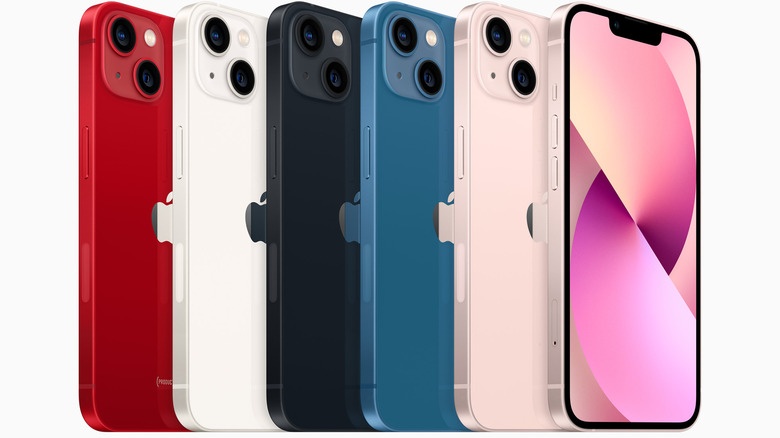The Founder Of Pebble Wants To Create A New Practical And Compact Android Phone
Phones have fluctuated in size over the years, but recently things have been trending bigger. The iPhones have their Max variants, Samsung users have a Plus model, and there are a bunch of large Android phones that are essentially mini-tablets. However, one tech entrepreneur wants to take things the other way. Pebble founder Eric Migicovsky wants to create an Android version of the iPhone mini — something that fits securely in a pocket and is easy to use with one hand.
Migicovsky seems to be quite serious about the idea. He started a website called Small Android Phone outlining his vision of the phone in May 2022, explaining his motivation for building it and appealing for help in making it happen. The tech entrepreneur detailed his desire for a device that "fits nicely in [his] pocket," is "much lighter," is "easy to use one-handed without dropping," and "won't fall out of [his] pocket while bicycling." Migicovsky noted that his potential device will benefit people who have smaller-than-average hands.
At the time, he acknowledged that the iPhone mini technically served that market, but pointed toward its underwhelming sales and the potential that Apple could kill it in the near future — which was a shrewd assessment, as Apple recently did just that. In the latest update on this ambition, former Pebble employee Ben Bryant shared some details on the Small Android Phone team's current efforts with The Verge, noting that there are still some specs to lock down, but that the project is underway.
What might the Android mini phone look like?
The Pebble founder had previously shared a fairly thorough outline of what he wanted the little smartphone to look like. He acknowledged some shortcomings of the form factor, namely reduced battery size and, fairly obviously, a smaller screen — but claimed these are outweighed by the potential phone's benefits. The concept idea, at least, would feature a stock version of Android and a 5.4-inch display running at 60 Hz. He also listed some things that would be nice to have, including IP68 dust and water resistance, a fingerprint sensor, a hardware mute switch, wireless charging, and an eSIM.
In his interview with The Verge, Bryant offered some insight into how the phone's design is panning out now that work is underway. The specs haven't been locked down yet, but he did share a number of concept designs featuring unique cameras, noting that the main camera may top out at around 50 megapixels. The team may end up designing its own camera software, though Bryant suggests some other options have also been explored.
Eager buyers shouldn't anticipate the "novel use of unusual materials," Bryant noted about the device's build. As for the hardware under the hood, it's possible the unnamed Android mini model could feature an upcoming mid-range Qualcomm chipset or go with the now-aging Snapdragon 8 Plus Gen 1. Buyers could be looking at a fairly hefty $850 price tag, and they may get at least two years of software updates, but many details are yet to be finalized.

